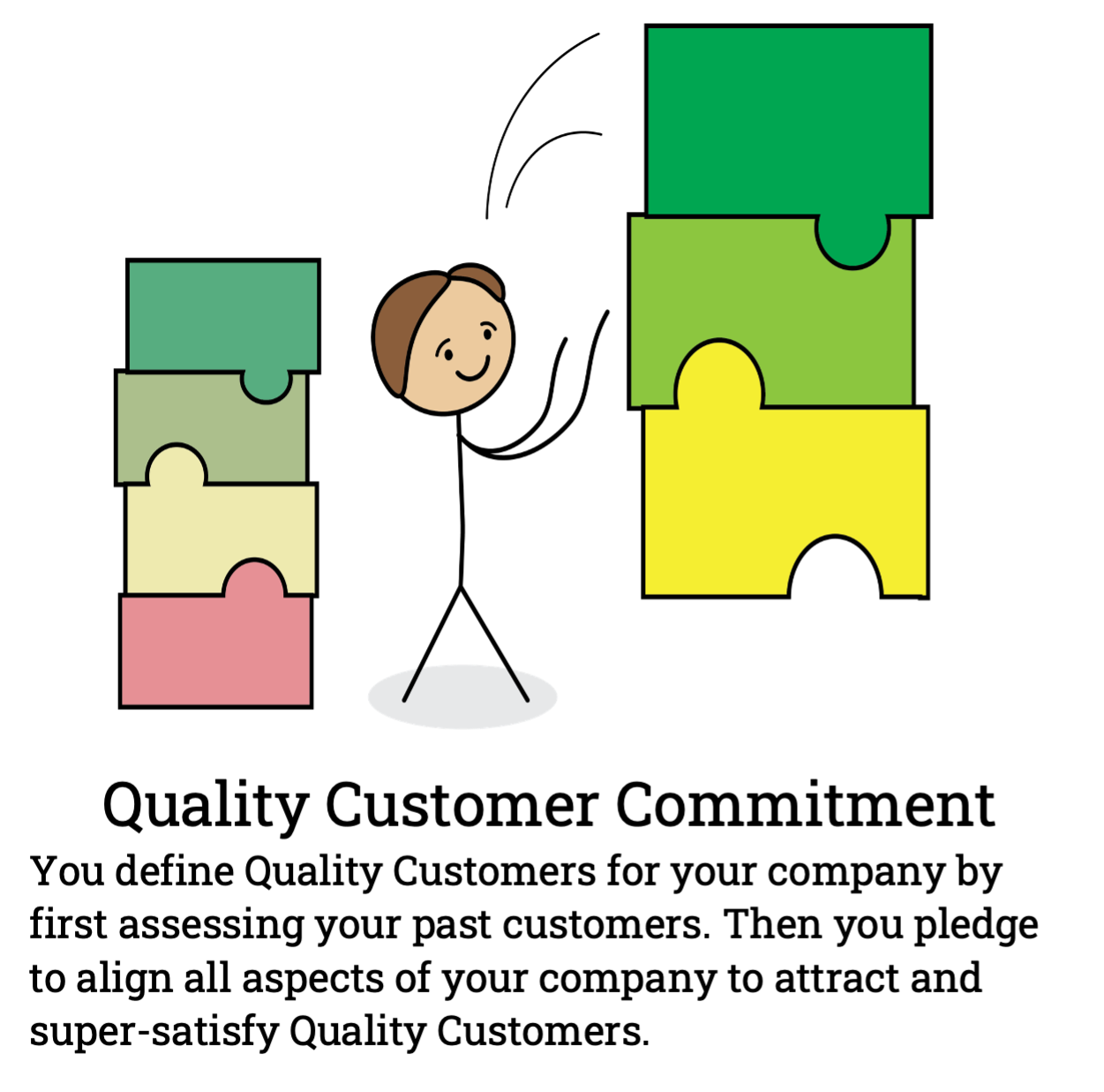Your Quality Customer Commitment
Who you do business with matters the most. Cultivate your base and superglue loyalty.

Jim Stein
Published Date: May 17, 2023

How committed are you to fueling your company with Quality Customers? A commitment is really a promise for the future. By committing to something, you focus your future actions to accomplish it. Your commitment will drive future decisions. The stronger your commitment, the easier your decisions.
Who you do business with matters the most. Fuel your company with too many bad and second-rate customers and you’ll feel the frustration of price shoppers who use you for a special and don’t return; or those who don’t really have the money to afford you; or customers who don’t appreciate anything and write bad, exaggerated reviews. You don’t have to put up with that.
Instead, strengthen your Quality Customer Commitment. Quality Customers are the best fuel to build your company for the long term because they’re willing to pay for quality, they want fair dealings, and they’ll return and refer others. This means you get an ongoing flow of good-margin work and are able to attract and compensate quality staff, build a solid cash cushion, and dramatically increase the value of your company.
Define Quality Customers: Attributes and Behaviors
Take the time to write out your definition of Quality Customers. Go through your past customer files and put them in two groups: those who are Quality Customers and those who aren’t. Then identify common attributes and behaviors of each group.

Cultivate Your Customer Base and Superglue Loyalty
To cultivate, you need to add Quality Customers and subtract bad and second-rate customers. You’ll have to quit some customers and turn down thin-margin work and problem customers, so you’ll need a strong Quality Customer Commitment. You’ll make the right customer choices when you’re committed to fueling your company with Quality Customers.
Think how successful you’ll be in the future when you change your company’s customer fuel mix over the next few years from, say, 40%/60% to 75%/25% (Quality Customers/Second-Rate Customers). Your company will double or triple in value, and your work will be a lot more fulfilling for you and your team.
Related Blogs

Why is Helpful Expertise so Important?
Jim Stein
Giving Helpful Expertise means meeting customers where they are by customizing your responses based on their job specifics, personal communication style and pacing. Too often companies fail to help customers because of mismatched communication styles they don’t provide answers to key unasked questions – your potential customers don’t know what they need […]

Helpful Expertise #4: Knowledge + #5: Insights
Jim Stein
Expertise is what members of your team know about the various types of work they produce and the industry they belong to. They’ve gained this knowledge through direct experience and study. You’ve trained them on Best Practices, which produce better outcomes, and they use their expertise to communicate with customers and decide how to do the work.
Latest Blogs

The Deciding Factor
Jim Stein
Your potential customers’ brains are constantly absorbing signals from both your company and your competitors and then using these signals as a basis to choose. Each market signal that your company sends moves their “preference for your company” needle up or down. One of your signals will be the Deciding Factor: the one that causes a Prospect to pick your company.

Force Success
Jim Stein
Ask most company managers and they’ll tell you the key to satisfying customers is to “do what the customer wants.” Although this is a reasonable answer, I believe in adding to this by embracing the philosophy of “do what the customer needs.” Although it takes extra time to educate a customer and merge their wants with newly learned needs, it leads to a more satisfied customer and it’s the right thing to do.


